IINNL Capitalisation Strategy
Strategy for Raising Private Equity Capital through Citizens as a Way Forward, The Concept As Well As Possible Subscription Plans
The initially conceived strategy was based on the principle of citizens participation on equal equity basis (crowd funding model) to subscribe to, raising N1,000,000.00 per each subscriber over 1-5 year period into a purely Private-Sector Special Purpose Vehicle, owned by all the subscribers, that will be the Investment Company of the Northern Nigeria to intervene directly, through creation of Area-Specific-Entities (Companies), in the key areas and sectors that have impeded the North’s ability to grow its economy as well as sustain the minimal level of standard required of basic social amenities and economic infrastructure of the modern world. These Sectors have substantial relationships and implications with the following: –
- Agriculture,
- Knowledge and Education,
- Infrastructure: That are critical and needed to support activities in all major economic and social sectors (Notably Rail Services, Information Technology & Gas resources to industries)
- Access to Finance,
- Creation of a Development Fund (Northern Nigeria Development Fund or NNDF) to support sustained supply of services in those purely social sectors that pressure on government finances have made it impossible for governments to remain in position to sustain standards levels expected of such facilities.
Short Term
• Identify at 1000 committed people to invest
• Maximum of N1million each
• Possible payment plan over 2 years for the financially fatigued.
Medium Term
• Each of the 1,000 above will canvass for more investors
• There will be planned Road shows, On-Line Campaigns, Digital billboard adverts to promote IINNL goals, etc.
Long Term
• Target 100,000 investors annually
• To raise N1 trillion by 10th year of inception
• Through a variety of payment plans
10 Focused Investment Areas
Creation of an Investment Bank of Northern Nigeria
Investing in Gas Pipeline and Agriculture
Investing in Power Generation and Distribution & Renewable Energy: Solar, Wind and Waste to Energy
Investing in provision of Education and Human Capital
Investing in reviving the Health Sector
Investing in developing Mining & Extractive Industrial Sector
Investing in Sustainable Transport System: Aviation, Railway, Roads, Buses & Waterways
Investing in Information and Communication Technology (ICT) & Artificial Intelligence (AI);
Revival of Industries and creation of Special Economic Zones (SEZs)
Creation of an Endowment Fund as a CSR
Immediate Focus Areas
Creation of an investment Bank of Northern Nigeria.
Access to Finance
Limited access to finance for smallholder farmers and agribusinesses restricts their ability to invest in improved technologies and practices. Creation of an Investment Bank of Northern Nigeria for ease of Access to Finance and as an Intervention Financial Agency of all private economic investments in the north is the way to go.
Intervention vehicle of the north either within the current framework of a REGIONAL BANKING Licensing regime of the CBN or Intervention Vehicle of the North will greatly improve the situation.
An Access to Finance Facility in the form of an Investment Bank to support Investments in the North largely in Joint-Ventures or Equity Injection to facilitate actualization.

Investing in Gas Pipeline and Agriculture.
Gas Pipeline to the North
Extend Gas pipeline to the North to bring in cheap fuel and feedback to industries in the North and enable production of chemicals and Fertilizers locally.
- Providing cheap fuel to Power Plants and Industries, it costs 1/100th to power with Gas as against Diesel
- Providing Feedstock to Petrochemicals Industries to be produced directly in the North
The above two restore several thousands of jobs lost as a result of escalated costs of doing Business and the resultant closure of many Industries due to non-competitiveness

Creation of Gas Pipelines
Investment in gas pipeline infrastructure in Northern Nigeria is a significant focus, with the Ajaokuta-Kaduna-Kano (AKK) gas pipeline being a key project:
- This is a major project aimed at transporting natural gas from the southern region of Nigeria to the Central and Northern regions;
- It’s a 614-kilometer pipeline with a significant investment, estimated at around $2.8 billion;
- The project is being developed by the Nigerian National Petroleum Corporation Limited (NNPCL);
- A major goal of the AKK pipeline is to boost industrial development and power generation in the Northern regions;
- There is also talks on investment in mini LNG plants, and CNG infrastructure to further distribute gas to northern regions.
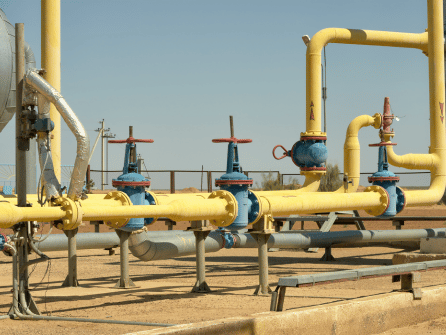
Financing for projects like the AKK pipeline involves a combination of government and private funding, loans from international sources (such as the Bank of China, etc), and investments from entities like the Nigerian Gas Company.
Agricultural Infrastructure and Inputs
Investment in agriculture and the agricultural value chain is a critical area with significant potentials.
- Invest in agricultural research through creation of a dedicated College and collaborative work with other
agencies and universities. - Creation of an Agricultural Inputs and Implements Supply company.
- Creation of Agricultural Produce and Commodities Procurement, Distribution and Marketing Company:
- Pyramid Commodity Exchange Limited. Leveraging technology and collaborative models to create a
sustainable and scalable agricultural value chain. - Agricultural value chains encompass the flow of products, knowledge and information between smallholder farmers and consumers. They offer the opportunity to capture added value at each stage of the production, marketing and consumption
process.
Why Agriculture? Agriculture is a dominant sector, employing a large portion of the population.
Here's a breakdown of key agricultural value chain
aspects:
Abundant Agricultural Resources:
- Northern Nigeria possesses vast arable land suitable for diverse crops and livestock production;
- Its strategic location allows for potential exports to neighboring countries.
Large Market Demand:
- Nigeria's growing population creates a substantial domestic market for agricultural products;
- There is also a growing demand for processed agricultural goods.
Value Chain Development:
- . Opportunities exist to enhance the entire agricultural value chain, from production and processing to storage, distribution, and marketing;
- Agro-processing offers significant potential for value addition and job creation.
Investment in Technology:
- Adopting modern farming techniques, irrigation systems, and post-harvest technologies can significantly boost productivity;
- Investment in agricultural technology can also help to mitigate the effects of climate change.
Current Government Initiatives on Agriculture and Investments:
- Nigerian government is implementing various programs to promote agricultural development and investment, including initiatives aimed at improving access to finance, providing agricultural inputs and incentives for investors;
- International Organizations like International Fund for Agricultural Development (IFAD), Value Chain North (VCN) program are investing in agricultural projects in Northern Nigeria, with a focus on supporting smallholder farmers and enhancing the agricultural value chain but more needs to be done;
- There is growing interest from the private sector in investing in agribusiness in Northern Nigeria, particularly in areas such as agro-processing and logistics. Indeed, the north possesses immense agricultural potential. Addressing the challenges through targeted investments and collaborative efforts is crucial for unlocking these potentials and driving sustainable economic growth.


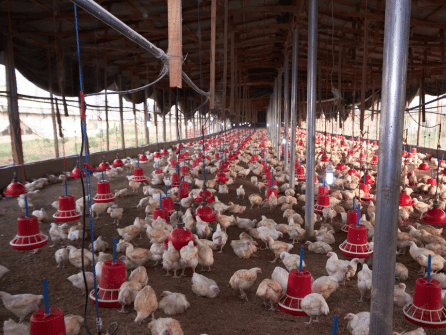



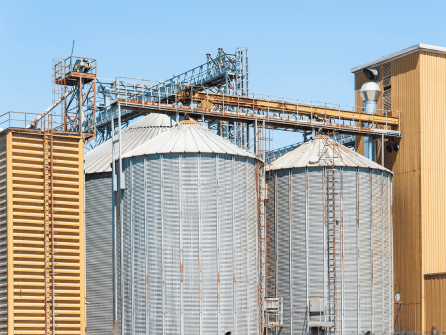

Investing in Power Generation & Distribution and Renewable Energy: Solar, Wind and Waste-to-Energy.
Power and Sustainable Energy Supply
- Power generation and distribution;
- Enhancing the Current Power Generation capacity;
- City-Specific Power generation investments as Emergency Power Programs
- Tap from current reform in the power/gas master plan drive & many more commercially viable investments.
- Emphasis on leveraging its existing hydropower resources and integrating them with solar power.
- Energy: small scale hydro power, solar and waste to energy;
- Extraction and exploitation of the already found oil & gas in Northern States
It's clear that there's a growing focus on renewable energy investments in Northern Nigeria, particularly in hydropower, solarhydro-hybrid projects, wind and broader sustainable energy initiatives. Here's a breakdown of key points:
Hydropower:
- Existing hydropower projects at various stages of completion, like the Mambila, Itisi, Galma, Zungeru, Makurdi, Shiroro Hydroelectric Power Plants etc., can be leveraged;
- There's a move to enhance these assets with complementary renewable sources;
- Projects like the one connecting the Gurara Hydro Power Plant to industrial users demonstrate the potential for hydro energy distribution.
Solar-Hydro Hybrid Projects:
- The partnership between the Nigeria Sovereign Investment Authority (NSIA) and North South Power Company Limited (NSP) to develop a solar-hydro hybrid project in Shiroro, Niger State, is a significant development;
- This approach aims to improve grid reliability and optimize energy generation by combining solar and hydro power
Broader Sustainable Energy Investments:
- The Nigerian government is making substantial investments in power sector upgrades, including distribution networks, which are essential for integrating renewable energy sources;
- Private sector involvement, as seen with Konexa's renewable electricity trading platform and investments from funds like Climate Fund Managers (CFM) and Microsoft's Climate Innovation Fund, is driving progress;
- The NSIA is heavily invested in renewable energy projects. This shows a governmental push to move to cleaner energy.
In summary, Northern Nigeria is witnessing increased investment in sustainable energy, with a strong emphasis on leveraging its existing hydropower resources and integrating them with solar power. This trend is supported by both government initiatives and private sector participation, but more investment is needed.
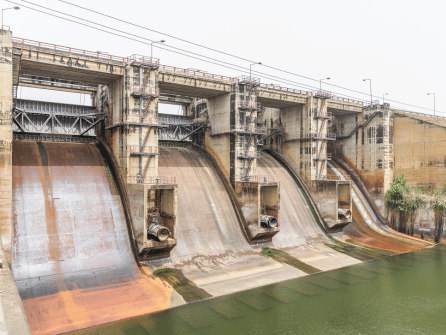
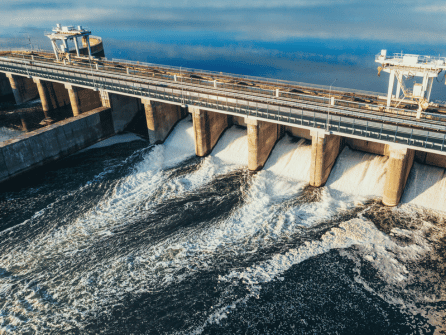
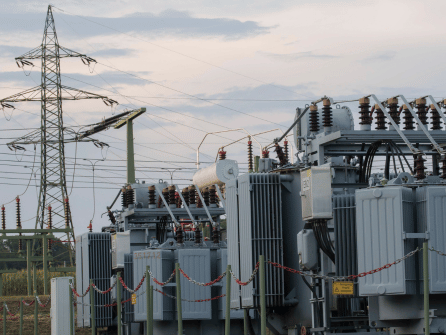
Solar Power potential due to its high levels of Solar Irradiation
- High Solar Irradiation: Northern Nigeria has a very large potential for solar energy. It receives significantly more sunlight compared to the southern regions (ranges from 5.62-7.01 kWh/m2,). This translates to a greater potential for solar energy generation
- The abundant sunlight and large land area in Northern Nigeria create a substantial opportunity for both utility-scale solar farms and off-grid solar solutions.
- Solar energy is a clean and sustainable source of power, contributing to environmental protection and reducing reliance on fossil fuels.
- Solar power implementation can help to create jobs and stimulate economic growth in Northern Nigeria.
In essence, Northern Nigeria is well-positioned to become a major hub for solar energy production, which could have a transformative impact on the region's energy landscape and overall development.
Creating jobs and stimulating economic growth through empowerment in this hub for solar energy.
Empowerment involves providing individuals, particularly women and youths, with the resources and opportunities to make their own choices and control their own lives toward self-reliance. This includes access in this solar energy endeavor; and including in education, skills training, healthcare, other economic opportunities, and even political participation.
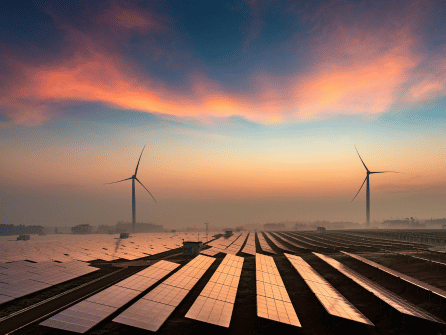
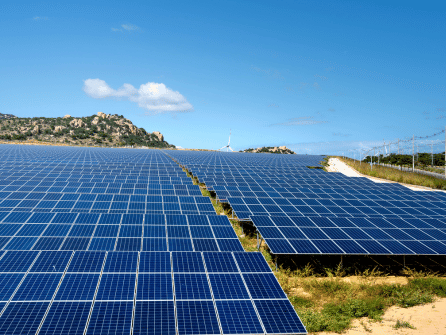
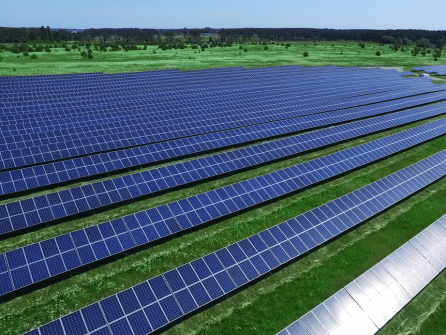
Investment in Wind Energy
Nigeria faces a significant energy deficit, and the Northern region is particularly affected. Wind energy can contribute to meeting this growing demand.
- Northern Nigeria possesses substantial wind resources, making it a viable location for wind energy generation
- Investment in wind energy can stimulate economic development in the region by creating jobs and attracting further investment.
- Wind energy is a clean and renewable energy source, which can help reduce greenhouse gas emissions and mitigate climate change.
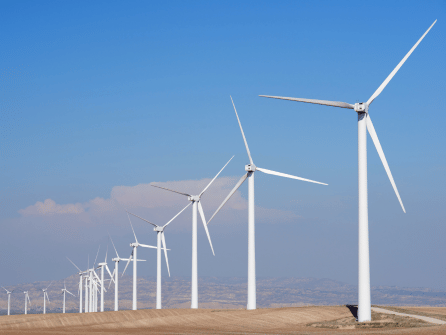
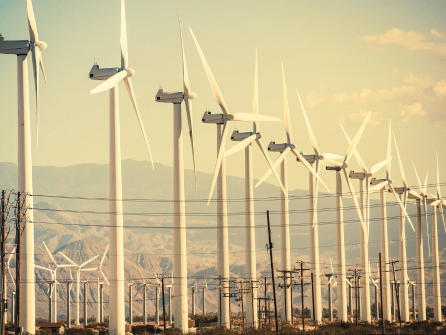
- The Katsina Wind Farm is a notable example of wind energy potential in the Northern region, although it has faced operational difficulties and now abandoned;
- There are ongoing efforts to develop further wind energy projects, such as the Gurara II Wind Farm in Niger state;
- Attracting investment in wind energy requires addressing the challenges related to infrastructure, security, and policy;
- A stable and supportive policy and regulatory framework is essential to attract investment and promote the development of wind energy;
- This offers an opportunity to diversify Nigeria’s energy mix, which is currently heavily reliant on fossil fuels.
In essence, while Northern Nigeria holds strong wind energy potential, overcoming existing obstacles is crucial for realizing its full investment potentials.
Waste-to-Energy
Investment in Waste Processing and Waste-to-Energy provide continues Power Supply, Sustainable Development, Energy Independence / Alternative Fuels, Land application (agricultural) use and Composite products.
Investing in provision of Education and Human Capital.
Education: Knowledge-based Economy
A knowledge-based economy is one where growth is driven by the production, distribution, and application of knowledge and information. This involves investing in: Education and skills development, Research and Development, Technology and Innovation, Information and communication technologies (ICT).
- Invest in the creation of Science & Technology Secondary Schools & Universities; to provide quality education at all levels, with a focus on STEM (science, technology, engineering and mathematics);
- Invest in the creation of vocational and technical training centers to equip young people with practical skills relevant to the modern economy;
- Invest in creation of Mono/Polytechnics across the region;
- Invest in building ICT infrastructure, including broadband internet access, to connect businesses and communities;
- Promote digital literacy and provide access to online learning resources;
- Support the development of technology hubs and innovation centers to foster entrepreneurship and creativity;
- Encourage the adoption of technology in key sectors such as agriculture, healthcare, and education




Education: Human Capital and Empowerment
Investment in human capital and empowerment is crucial for the development of Northern Nigeria. Key areas of investment:
- Education: Increasing access to quality education at all levels, especially for girls, improving the quality of teaching and learning, and promoting adult literacy programs;
- Healthcare: Improving access to quality healthcare services, particularly for women and children, strengthening primary healthcare systems, addressing malnutrition and other health challenges;
- Economic empowerment: Providing women with access to financial resources and promoting entrepreneurship and economic opportunities for the youths;
- Social and cultural factors: Addressing cultural norms that limit girls’ education, promoting women’s rights, engaging community leaders and religious leaders in promoting positive change.
Importance of Human Capital and Empowerment:
- Investing in human capital is essential for economic growth and development;
- Educated and healthy populations are more productive and innovative;
- Empowered women contribute significantly to economic and social development.
- Empowerment involves providing individuals, particularly women, with the resources and opportunities to make their own choices and control their own lives;
- This includes access to education, healthcare, economic opportunities, and political participation.
Investing in reviving the Health Sector
There may be the need to equally look at the need to build 3-brand new Hospitals, one each to a zone with a view to creating window for access to good Medicare. These hospitals shall be to any global standard and capable of supporting the Universities and Polytechnics in internships and training.
Build New Nursing And Midwifery Colleges:
Attached to each of these hospitals shall be brand new Nursing & Midwifery Colleges developed to very high standards and capable of providing the needed support to the Hospitals as well as other medical institutions. These essential facilities no longer exist in the North currently as a result many hospitals lack qualified nurses and midwives. The Configuration of these Colleges would be within the framework of the Scars Skills Colleges to enable the same system and program supports them.



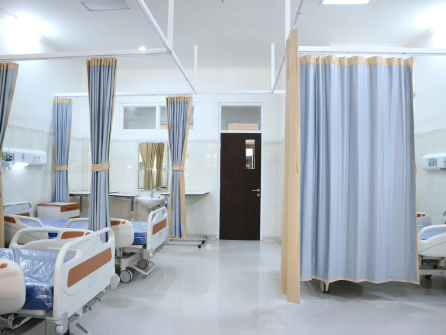
Investing in developing Mining & Extractive Industrial Sector.
Investing in the mining and extractive industries in Northern Nigeria presents both significant opportunities and considerable challenges. Here's a breakdown of key considerations:
Opportunities: Abundant rich mineral in various mineral resources, including gold, tin, columbite, lead, zinc, oil & gas, lithium ore and various gemstones, etc. This abundance presents a substantial potential for economic growth.
- Invest in the creation of Hi-tech Mineral Specific Mining Companies;
- Any other workable models/investments in the mining and extractive industry.
- The Nigeria Geological Survey Agency highlights the presence of world-class mineral resources, attracting potential foreign mining companies;
- The government is actively seeking to diversify its economy away from oil and gas, with a focus on developing the solid minerals sector;
- Government incentives and efforts to formalize artisanal mining operations aim to stimulate investment.
Canadians, Chinese and other international mining investors are interested in mining gold, lithium and other minerals in Northern Nigeria, they claimed that mining is the next big thing, bigger than oil in Nigeria and they are willing to invest in Northern Nigeria with the right partnership and Government support.
- Gold mining can be very lucrative in Northern Nigeria and huge deposit can be found in places like Zamfara, Kaduna, Niger, Sokoto, Bauchi, Kebbi, Nasarawa and Kwara;
- Investment in this sector holds a considerable promise and adopting environmentally responsible mining practices is vital to minimize the impact on the environment and implementing robust security measures is necessary to protect personnel and assets.
- Lithium is a highly reactive metal that is used for making energy-dense rechargeable batteries for electronics, such as laptops, cell phones, electric vehicles, and grid storage;
- Nigeria lithium is hot cake now, the mineral was discovered in several parts of Northern Nigeria in the course of the National Integrated Mineral Exploration Project, which was found to be of high grade;
- Another advantage of the found lithium ore is that it is hard rock high-grade Lithium Ore and that is what investors are looking out for worldwide.
The proposed Petroleum and Gas Development Company of Northern Nigeria can invest into the AKK project on behalf of The Group Holding Company, Invest-In-The-Northern Nigeria Limited as a guarantee for the supply to the North. This shall be the created entity of the North to venture into the Oil & Gas sector and to look at the Hydrocarbon Master-Plan with a view to identifying such areas in the North for possible investment, for example: a Refinery and Petro-Chemicals Plant, exploration and exploitation of Gas resources around such identified basins, etc.;



Investing in Sustainable Transport System: Railway, Aviation, Buses, Roads & Waterways.
Sustaining Rails Services to the North
Railway to support the movement of goods, services and persons from the Sea ports cities to the North;
The VP Muhammad Namadi Sambo model of the rail services within Kaduna State is a very good start that can be replicated for the whole North to support our ability to move goods, services and persons from the sea ports cities to the extreme North. This will substantially lower costs of transportation of Cargo, revive Inland Container Terminals activities, reduce rates of accidents and loss of lives and create comfortable means of travelling for many Nigerians. We commend Government for the progress on the Kaduna – Kano Rail services project on-going and we hope that we can work with the rest Governments of the North to syndicate a common facility to do similar projects for North-West and the North-East with both cutting through the North-Central in a strategically designed configuration.
- Sustaining the restored Rails Services ensure that Raw Materials arriving Nigerian shores are safely delivered up North within a maximum of 48 hours at even much cheaper cost of about 20% of cost of Road Transportation;
- The Rail also makes for alternative means of transportation for the masses and a safer means of transportation their goods;
- Sustainable Rails Services to the North to bring costs of haulage and enhance our Competitiveness as a regional economy;
- Additionally, the restoration and sustenance Rails Services restore economic activities in the station, towns that Rail passes through in the North.



Transportation: Aviation, Railway, Roads, Buses & Waterways..
Investment in transportation infrastructure in Northern Nigeria is a critical factor for the region’s economic development.
- Invest in the creation of Northern Nigeria Aviation Company;
- Invest in Railway Terminal and Airport concessions. To revitalize railway networks, expand and modernize existing lines, which can significantly improve the movement of goods and people across the region;
- Investment in other mass transit systems such as intercity bus schemes and Metro for urban areas.
- Investments in road construction and rehabilitation are essential. Improving road networks enhances connectivity between rural and urban areas, facilitating trade and access to essential services;
- Northern Nigeria has rivers like the Niger and Benue, which offer potential for water transportation.;
- Developing inland waterways can provide costeffective transport for bulk goods.



Challenges and Considerations
- Funding: Financing large-scale infrastructure projects is a significant challenge;
- Security: Security concerns in some parts of Northern Nigeria can hinder infrastructure development and transportation activities;
- Maintenance: Ensuring the long-term maintenance of transportation infrastructure is crucial for its sustainability;
- Intermodal Transport: Integrating different modes of transport (rail, road, waterways) is essential for an efficient transportation system.
- The government, along with private sector is involved in addressing these challenges.
- No doubt, improving transportation infrastructure is seen as a key driver for economic growth, job creation, and poverty reduction in Northern Nigeria, including security.
- It is important to understand that the need for improved infrastructure is very large in the northern region of Nigeria; and this requires huge investment.
Investing in Information and Communication Technology (ICT) & Artificial Intelligence (AI)
The Company shall enable the North to acquire relevant Licenses to support the needs of the Region in Communication, Data and Voice support, e-Learning and Telemedicine, Digital Transformation, and Artificial Intelligence (AI) etc.
This shall support all the newly developed Sciences & Information Technology Secondary Schools, University and Polytechnic and use it to extend mass education programs to the adult as a means of creating a more literate class as well as distribute such other vital information via the Network as it will relate to Agriculture, Commerce, Health, etc.


Investment in Information and Communication Technology (ICT) and Artificial Intelligence (AI) is becoming increasingly crucial for the development of all regions in Nigeria, including the Northern states. Here's a breakdown of key aspects: National Initiatives and Focus:
- Invest in the creation of Information and Communication Technology Company of Northern Nigeria;
- ICT based Digital Transformation Plan models/investments that will provide access to cheap and reliable means of information sharing to Northern Nigerian people, governments, etc.
- Invest in AI Development: There's a growing recognition of AI's potential to contribute significantly to Nigeria's GDP;
- The government is supporting programs and partnerships to foster Artificial Intelligence (AI) development.
ICT and AI Regional Considerations: Northern Nigeria faces unique challenges, including lower levels of digital literacy and infrastructure compared to other regions. Targeted investments are needed to bridge this digital divide.
- Investing in ICT and AI can play a vital role in diversifying the northern economy, creating new opportunities in sectors such as agriculture, education, and healthcare;
- Technology can be leveraged to address security challenges in the region, while also promoting social and economic development;
- It is vital that investment is made into educational programs in Northern Nigeria, to teach the populace the skills needed to engage with ICT and AI;
- Invest in expansion of e-Government services and development of local data center infrastructure.
Revival of Industries and creation of Special Economic Zones (SEZs).
Build new Industrial Parks in Kano, Kaduna and Suleja, in the first phase, as well as use facilities available in the created The Investment Bank of the North to support ailing industries to rehabilitate and put back into full production. Other Special Economic Zones shall be promoted for Jos, Bauch, Yola, Maiduguri, Sokoto, Jebba and Lokoja. Commodity Zones shall be built in Jebba and Makurdi.


Creation of an Endowment Fund (Northern Nigeria Dev. Fund)
The Northern Nigeria Development Fund (NNDF) was configured to be supported from 10% of the individual’s subscription dividend per annum. To address, but not limited to, the following:
i. Providing scholarships to highly talented people from the North either locally or overseas in such special areas of the needs of the North,
ii. Establishments of Healthcare facilities and Centers of excellence from Hospitals to Colleges of Nursing and Midwifery to Clinics and Dispensaries with access to either free or very cheap drugs affordable by all.
iii. Provisions of Chemicals, Fertilizers, etc as well as Extension Services support at very cheap rates or as loans in kind to be repaid through the Agricultural Inputs & Implements Supply and Services Company Ltd., whose main aim will be to ensure that such services reach every farmer and extended as loans in kind and to be repaid back in kind from harvests,
iv. Sports development,
v. Education: Primary Areas,
vi. Humanitarian,
vii. Training of Extension officers and Sanitary inspectors,
viii. Training of Forestry and protection of environment officers,
ix. Other key areas of needs to the North as situations may dictate.
It will have its Governing Board and Management made up of people of integrity and shall be a Member of the IINNL family.
Investment Roadmap
Investment Required 500 Billion
1.Access to Finance
2.Agriculture
3.Education
4.Health
Investment Required 800 Billion
1.Mining
2.Telecommunication
3.Endowment Fund
4.Power
Investment Required 1.500 Billion
1.Transport: Aviation and Railway
2.Technology Pack & Special Economic Zone
Critical Areas
1. Access to Finance
2. Rail Service
3. Gas pipeline infrastructure
Get Involved with IINNL
At IINNL, we believe that sustainable development is a collective effort. Whether you’re an individual, organization, or investor, there are many ways to get involved and make a difference. Explore the opportunities below and take the first step toward contributing to Northern Nigeria’s growth.
Join Our Human Capital Database
Register your expertise and collaborate with us on impactful projects.
